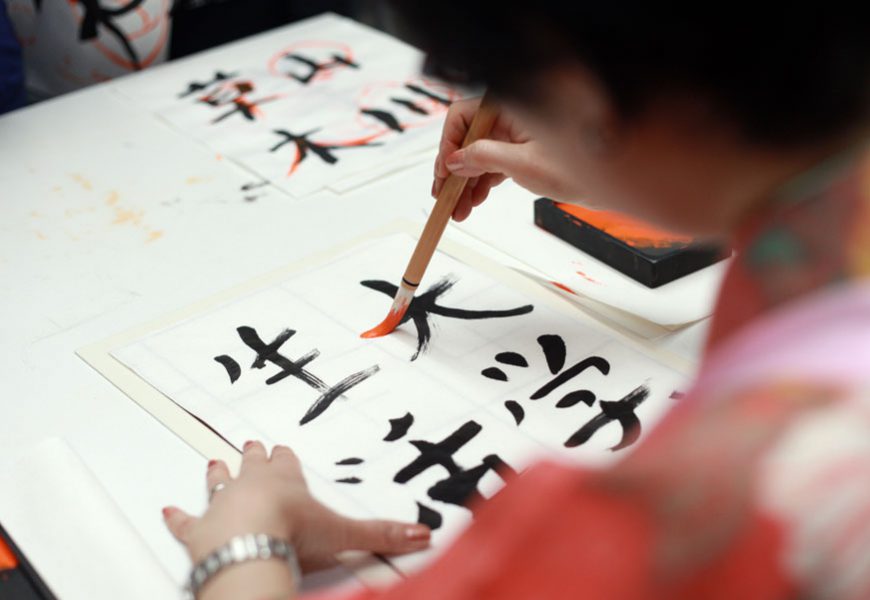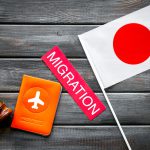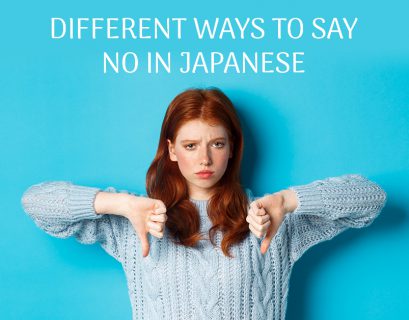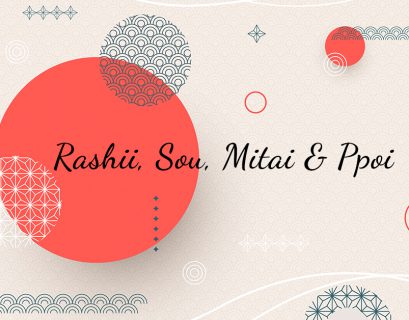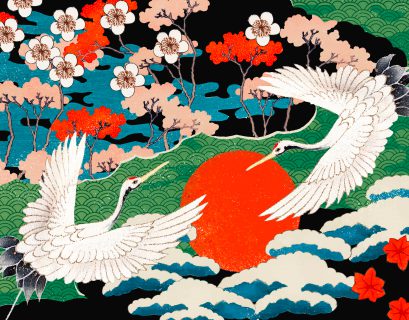The language of Japan is as fascinating as it is isolated. It is the 9th most-spoken language in the world and the third-largest language on the Internet, after English and Spanish.
It is no surprise that more and more people choose to Learn Japanese every day.
Japan, home to an archipelago of over 6,852 islands, has many wonders to offer people in and outside of the nation, such as its mountainous backdrops, delicious cuisine, rich cultural heritage and so much more. It is no wonder that many people are now trying to familiarise themselves with everything that has to do with the Land of the Rising Sun, such as learning its fascinating language.
The originality of Japanese Culture and Art including the massive popularity of Manga and Anime worldwide has urged many people from all across the globe to learn Japanese.
There are three basic scripts in the Japanese Writing System
- Hiragana (ひらがな)
- Katakana (カタカナ)
- Kanji (漢字)
The combination of Hiragana and Katakana is called Kana.
Kanji: The Japanese Writing System
What is Kanji?
Although they have different terms in different countries, Kanji has been used by the Chinese, Japanese, Korean, and Vietnamese.
Kanji is one of the Japanese writing systems and it is usually used to write adverbs, verbs, nouns, and adjectives. They are Chinese characters and were introduced to Japan in the 5th century.
Kanji are Japanese symbols that represent whole words. Simply put, it’s a short form or abbreviation for a non-japanese speaker. They can be classified as Pictographic, Indicative, and Compound characters and they represent words or ideas. They can also have different meanings and pronunciations.
Kanji originated from China but were imported into Japanese in ancient times, which is why Kanji has 2 readings:
- Chinese reading
- Japanese reading
How to write in Kanji?
Kanjis can be classified as Pictographic, Indicative, and Compound characters.
There are more than 50,000 Kanji characters but only about 2000 Kanji characters are taught in the Japanese school education system. Most Kanji are formed by combining Kanji characters.
For example, Monday (GETSUYOUBI in Japanese), if I write it in kanji, it takes 3 kanji characters 月曜日 whereas, in Hiragana げつようび, it is 5.
How To Learn Kanji?
If you are wondering how many days it takes to learn Kanji, well, in a proper Japanese language learning class, it usually takes 4 to six weeks to learn Kanji.
You can also learn Kanji by teaching yourself. Here are some materials you could utilize:
- Books
There are many Kanji books and ebooks for beginners you could buy offline or online. Here are our 3 top picks-1. Japanese Kanji for Beginners by Stout Timothy G.
2. Way to Learn the Basic Japanese Kanji Paperback by Eriko Sato Ph.D.
3. Remembering the Kanji by James Heisig. - Youtube
Thanks to technological advancements, which have given us video streaming platforms such as Youtube, learning anything from cooking to DIYs to learning a new language has become much easier and convenient. Here are some links that we think will help you understand Kanji much better-
1. Learn Kanji in 45 minutes – How to Read and Write Japanese
(https://www.youtube.com/watch?v=mPppVDX_GiY)
2. Learn Kanji with Vocab for Beginners #1
(https://www.youtube.com/watch?v=Xu9HIypscSM)
3. Introduction to Kanji | Minna No Nihongo Unit 1 Kanji
(https://www.youtube.com/watch?v=cLsiM8SpQik)
Where To Learn Kanji In India?
There are many offline and online classes in India, such as AKAL Japanese Academy in Green Park, New Delhi, where you can learn Japanese as well as the culture, traditions, and values of Japan. If you are a beginner, you can start with JLPT N5 and move up to N1. Institutions such as AKAL Japanese Academy have dedicated Japanese teachers from India as well as Japan who will guide you through every step. Moreover, offline courses are where you will find better opportunities to study and/or Work in Japan. They will even help you find a good school, the best jobs and assist you with the visa application process.
Hiragana: The Japanese Writing System
Let’s take a look at the difference between Hiragana and Katakana first, shall we?
According to Meguro Language Center (in Tokyo) website, “Hiragana (phonetic sounds) are basically used for particles, words, and parts of words” and “Katakana (phonetic sounds) are basically used for foreign/loan words.”
Let us focus on Hiragana as we have already covered Kanji.
What is Hiragana?
Hiragana is one of the three Japanese writing systems. It is a phonetic lettering system and is considered the basic way of writing in Japanese.
Japanese sentences are usually formed by combining Hiragana and Kanji and occasionally, Katakana. Hiragana is usually used to write grammatical and functional words like particles, Japanese native words without Kanji, and verb and adjective endings (okurigana).
Hiragana is used in replacement of Kanji and they can also be used for adverbs and names for animals and plants.
The two main systems of ordering hiragana are-
- Iroha ordering
- gojūon ordering
There are 48 base characters in the Hiragana syllabary, out of which are 8 singular vowels – あ [a], い [i], う [ɯ], え [e], お [o].
How To Learn Hiragana?
There are many ways to learn the Japanese writing style of Hiragana. Here are some of them along with some materials we believe would help you –
- Books and Ebooks
There are many Hiragana books and ebooks for beginners you could buy offline or online. Here are our 3 top picks –
1. Learn Japanese Hiragana – The Workbook for Beginners by George Tanaka.
2. Writing Japanese Hiragana: An Introductory Japanese Language Workbook by Jim Gleeson.
3. Learning Japanese Hiragana and Katakana: A Workbook for Self-Study by Kenneth G. Henshall. - Youtube
Youtube is the ideal platform for beginners to learn almost anything and everything
Here are a few of the bests links to where you can learn Hiragana-
1. Learn ALL Hiragana in 1 Hour – How to Write and Read Japanese:
https://www.youtube.com/watch?v=6p9Il_j0zjc&t=2s
2. The Easiest Way To Learn Hiragana:
https://www.youtube.com/watch?v=sFiP5YW1m48
3. Learn Hiragana: Simple 3 Step Process To Learn ALL Hiragana (FAST):
https://www.youtube.com/watch?v=-9dyelBNvuA
Where To Learn Hiragana In India?
To learn Hiragana, we suggest you join offline or online courses in Japanese language. Japanese language schools such as AKAL Japanese Academy are where you will be able to learn to speak and write in Japanese within just a few months. You can also Learn Japanese Online through their online courses.
Katakana: The Japanese Writing Style
Let’s focus on Katakana as we have already covered Kanji and Hiragana.
Although Hiragana and Katakana may look similar but there are 46 characters in hiragana as well as in katakana, 5 vowels, there are some significant differences between them, which are:
Katakana can easily be identified as these usually look like blocks and are sharp while Hiragana is curly as they are shaped like English cursive.
Hiragana is used for native words. Katakana, on the other hand, is used for loan words such as names of the animals, food, or companies.
While Hiragana is for grammar notation and Katakana is for phonetic notation.
Hiragana is considered to be the basic way of writing in Japanese and Katakana is often used for emphasis.
Now, on to the topic at hand.
What Is Katakana?
One of the components of the Japanese writing systems and developed in the 8th century by simplifying the form of Kanji symbols, Katakana are used for loan words such as names of the animals, food, or companies, words which cannot be further translated into Japanese. Each letter represents the sound of a syllable.
Here are some examples:
- Russia – ロシア
- Soccer – サッカー
- Mozart – モーツァルト
- Tomato – トマト
- Halloween – ハロウィーン
- America – アメリカ
- Mitsubishi – ミツビシ
As you can see from the examples given above, the Katakana alphabets look block-ish and sharp, making them angular in appearance.
Without counting the functional and diacritic marks, there are 46 basic Katakana (gojūon) in modern Japanese. In addition to these basic scripts, there are modified forms to describe more sounds, which are-
- 20 dakuon
- 5 handakuon
- 36 yōon, 1 sokuon
- 6 additional letters
How To Learn Katakana?
While there are many fine institutions to join to learn Katakana, here are some materials you could utilise to teach yourself Katakana.
- Books and Ebooks
Here are our top picks of the best books for learning Katakana
1. Learn Japanese Katakana – The Workbook for Beginners by George Tanaka.
2. Katakana From Zero!: The Complete Japanese Katakana Book, with Integrated Workbook and Answer Key by George Trombley.
3. Japanese Hiragana & Katakana For Beginners by Timothy G. Stout. - Youtube
Visit the links provided below to learn Katakana easily.
1. Learn ALL Katakana in 1 Hour – How to Write and Read Japanese:
https://www.youtube.com/watch?v=s6DKRgtVLGA
2. Learn ALL Katakana in 1 Hour – How to Write and Read Japanese:
https://www.youtube.com/watch?v=s6DKRgtVLGA
3. The Easiest Way to Learn KATAKANA #1 │JAPANESE AMMO:
https://www.youtube.com/watch?v=ZT6upZrmmnA
Where To Learn Katakana In India?
There are many institutions in India where you can learn Katakana. One such institution is AKAL Japanese Academy in Green Park, New Delhi. They have some of the best Indian and Japanese teachers who will teach you Japanese and guide you through every step of the way.
About AKAL Japanese Academy
Akal Japanese Academy is one of the best institutions in India to Learn Japanese Language. Here, not only will you be taught Japanese along with the three Japanese writing styles, but you will also get the opportunity to familiarize yourself with Japanese Culture, arts, entertainment, and heritage.
Located in Green Park, New Delhi, AKAL Japanese Academy focuses on imparting Japanese language and cultural training to students, TITP trainees, and highly skilled professionals who are interested in Working or Living and Studying in Japan.
Sayonara!

